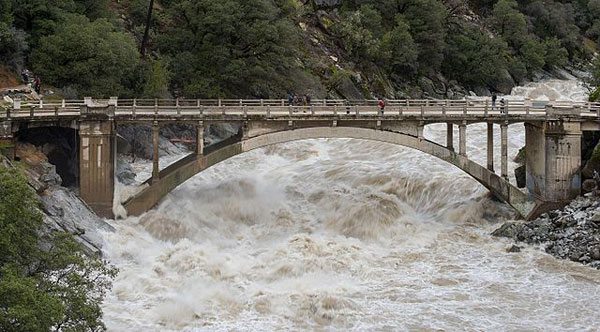
September 21, 2017; Scientific American
Who is responsible for climate change? Oakland and San Francisco intend to pin at least some of the blame on large fossil fuel companies, including BP PLC, Chevron Corp., ConocoPhillips Co., ExxonMobil Corp., and Royal Dutch Shell PLC. The California cities have filed lawsuits claiming damages related to climate change they say the companies caused. In a savvy move, both engaged activist lawyer Matt Pawa to argue their case, tying their efforts to the #ExxonKnew movement.
San Francisco’s lawsuit explains the line of reasoning for the suit: Fossil fuels cause global warming, the oil companies refined and extracted “massive amounts of fossil fuels despite having full knowledge…that fossil fuels would cause global warming,” and San Francisco and Oakland “will incur serious climate change injuries that will require billions in expenditures to abate the global warming nuisance.” The lawsuit describes the impending floods as “an unlawful public nuisance of the first order,” for which it claims oil companies are responsible.
A 2015 investigation by InsideClimate News about Exxon’s failure to publicize its research about climate change forms the basis of the #ExxonKnew movement, which calls for a federal investigation to determine whether Exxon “intentionally misled the public about climate change and fossil fuels.” Pawa has previously briefed attorneys general and others on Exxon’s activities, and is on the board of the Center for International Environmental Law.
Greenpeace’s Climate Liability Campaigner, Naomi Ages, said, “It’s time to hold these climate deadbeats accountable. Greenpeace applauds San Francisco and Oakland.”
As NPQ recently noted, the costs of dealing with the increased flooding from climate change and related disastrous weather are enormous, and cities are struggling with how to protect themselves. As Jeff Stein of Vox explained, FEMA funding is both insufficient and difficult to obtain and administer. Larry Larson, senior policy adviser at the Association of State Floodplain Managers, told Stein, “I would venture to say that a lot of the facilities damaged in Harvey have been rebuilt at least once, if not twice, with taxpayer dollars.”
Oakland and San Francisco, along with a few other cities that have filed similar suits, aim to change that. They want fossil fuel companies, not taxpayers, to pay for raising buildings, constructing sea walls, and implementing other programs to help protect them from flooding.
Sign up for our free newsletters
Subscribe to NPQ's newsletters to have our top stories delivered directly to your inbox.
By signing up, you agree to our privacy policy and terms of use, and to receive messages from NPQ and our partners.
According to Scientific American, “A spokesman for Royal Dutch Shell called climate change a ‘complex societal challenge’ to be addressed by governments, ‘not by the courts.’” Of course, that would work out pretty well for Royal Dutch Shell and its competitors, since President Trump’s government has made it plain they have no intention of taking action on climate change. Instead, municipalities have stepped up to implement the Paris accords and other programs that protect their citizens and infrastructure.
If Oakland and San Francisco are to be successful, Pawa and the other plaintiff representatives will need to overturn a precedent set in 2012 in Kivalina v. ExxonMobil Corp. Kivalina was a small, 97-percent-Native Alaskan town whose “survival has been threatened by erosion resulting from wave action and sea storms for several decades.” (NPQ has described in the past how climate change especially threatens native Alaskans’ villages and way of life.) The Ninth Circuit ruled in Kivalina that the claims of climate change damage were viable, but were addressed by the Clean Air Act and EPA action that could not be overruled by common law litigation. Perhaps EPA’s recent backtracking on climate change will affect the opinion of the courts this time.
Pawa is not one to be discouraged. “Tobacco litigation took 30 years or more before the courts were ready and before the correct legal theories were there to make it all work,” he told VICE News. “We gotta keep filing case after case before we get it right.”
Pawa’s central role in the escalating bombardment of Exxon has made him a target, as the company’s allies liken him to a puppet master orchestrating the campaign behind the scenes. But he told Politico that he is not formally involved in any state investigations, even as he suggested that more AGs could jump into the fray.
Many activists and organizations, including Greenpeace and #ExxonKnew, are using this municipal challenge to push California’s attorney general Xavier Becerra to join New York’s Eric Schneiderman and Massachusetts’s Maura Healey in launching a statewide investigation of Exxon’s actions.
Should fossil fuel companies be held responsible for global warming, and if so, to what degree do they owe liability? Will the deep coffers of Exxon Mobil and BP fund the salvation of coastal cities? Are the companies that extract and refine fossil fuels as culpable as the people that consume them or the government that fails to regulate them? All of these questions and more will be debated in the coming months, as the water levels rise.—Erin Rubin












